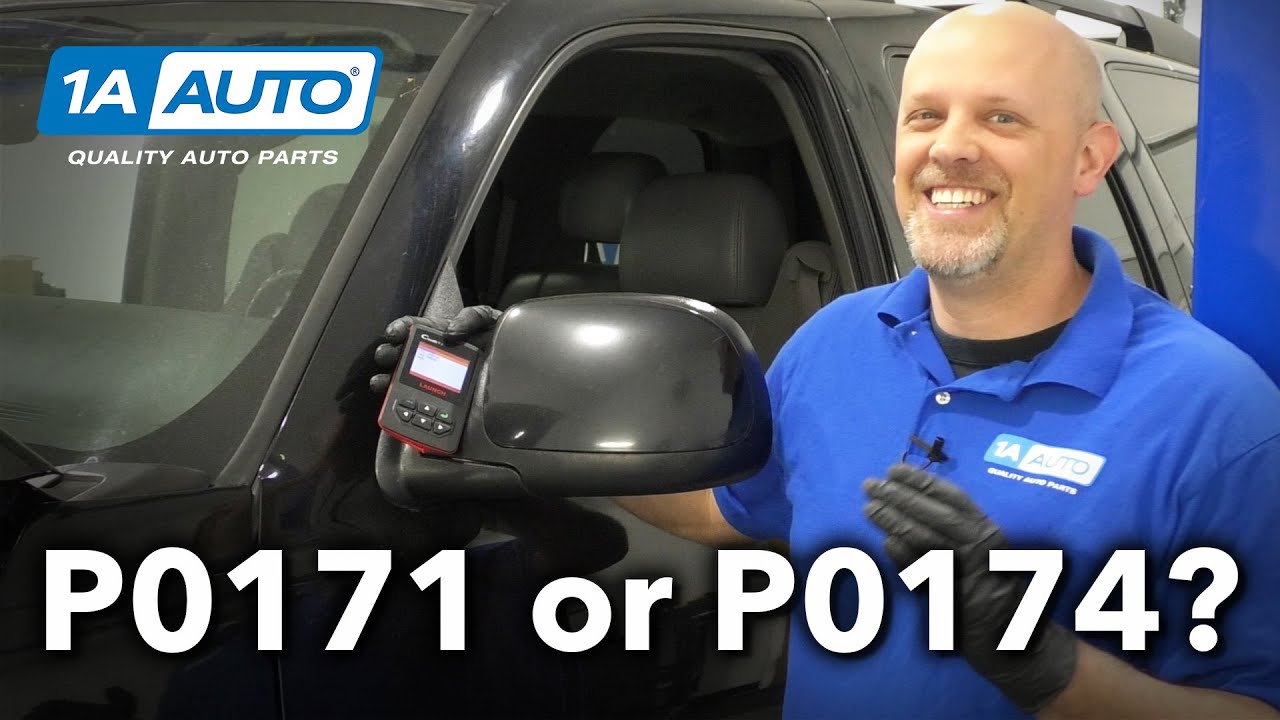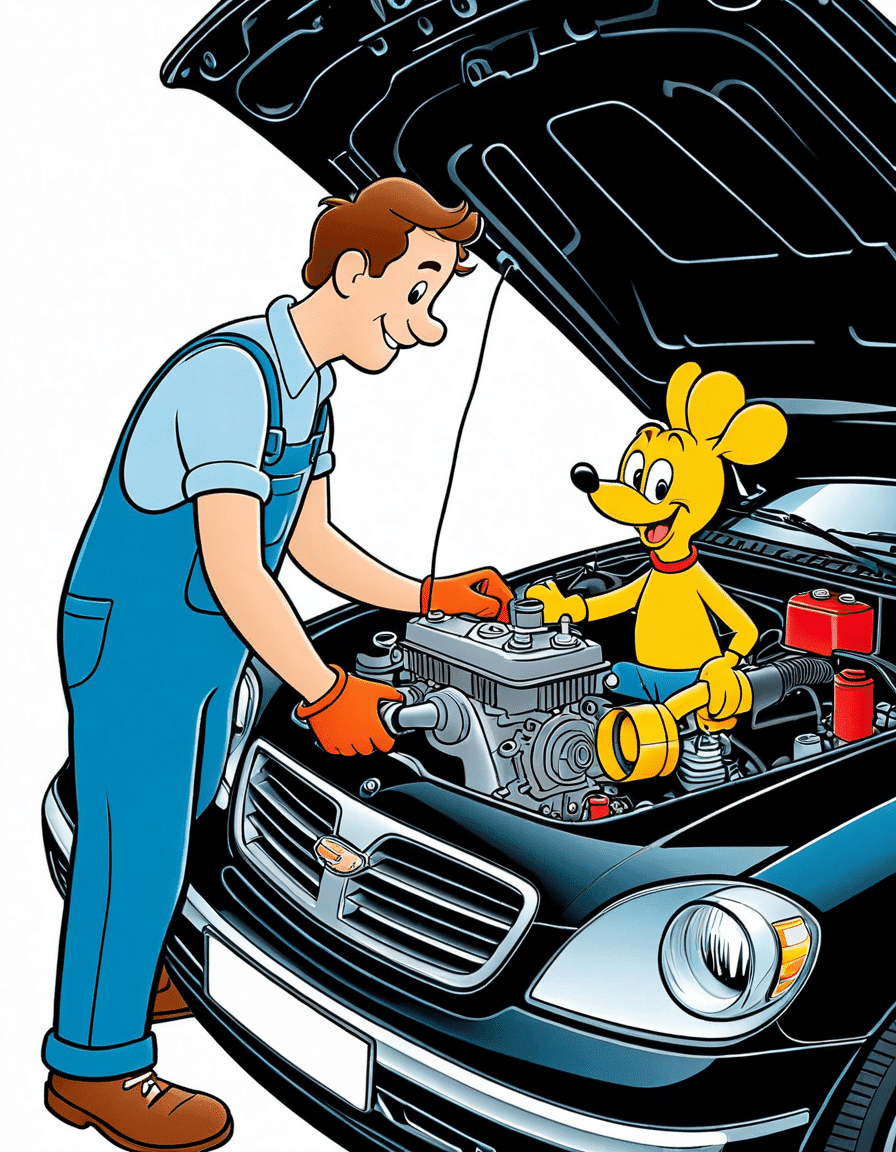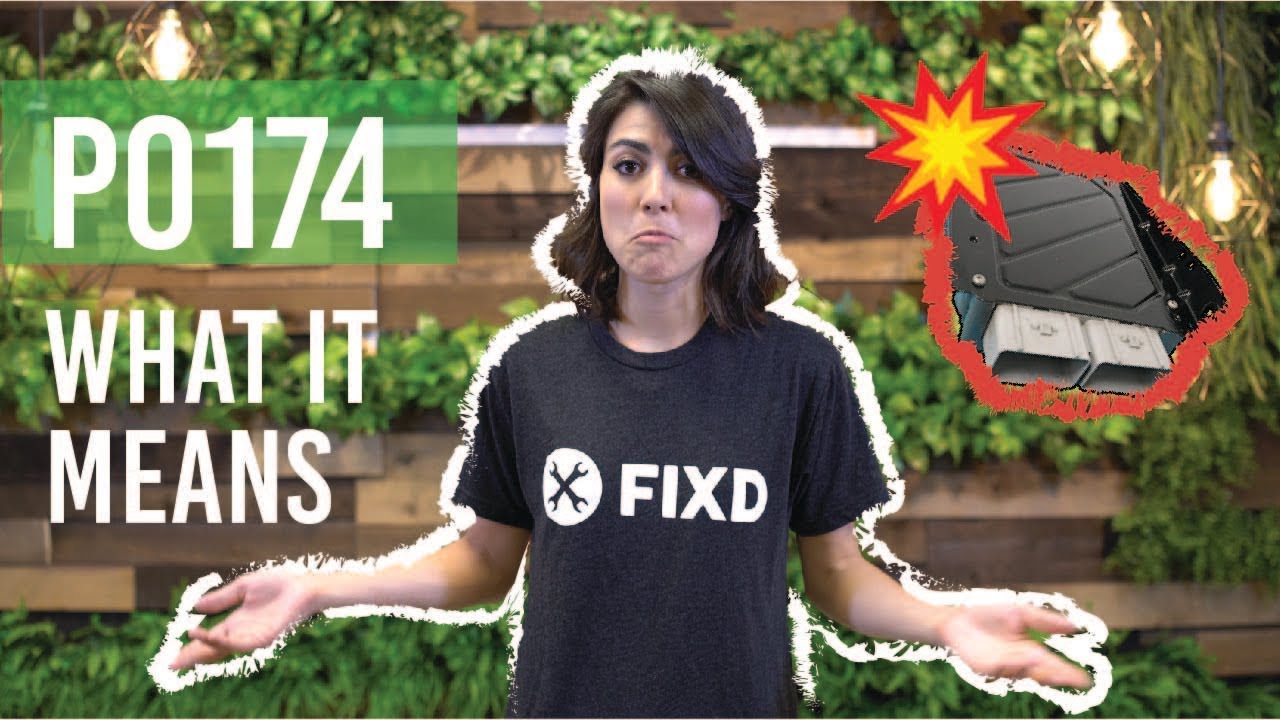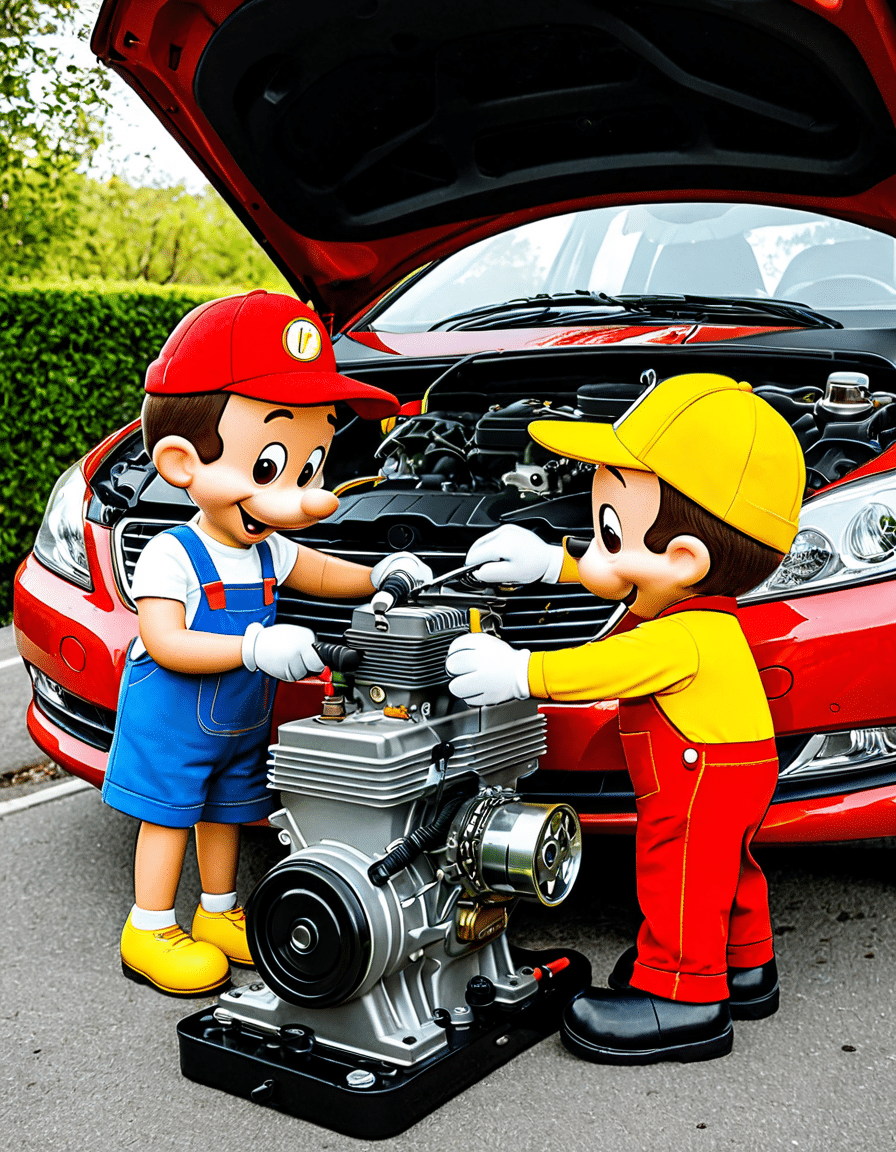Ah, the P0174 diagnostic trouble code! That sneaky little number that sends shivers down the spine of car enthusiasts and everyday drivers alike. It means the engine is running too lean—more air than fuel, and that can throw a wrench in your vehicle’s performance. If your ride is sputtering like a tired old train or gasping for fuel under hard acceleration, you might be sporting that ever-dreaded P0174 code. Exploring this issue and its causes can save you both heartache and cash, guaranteeing your car revs like a starlet on the runway.
Let’s embark on this adventure into the mysterious world of automotive diagnostics. Buckle up; we’re diving into common causes of the P0174 code and pragmatic solutions that’ll make your vehicle sigh in relief.
![How to Fix P0174 Engine Code in 2 Minutes [2 DIY Methods / Only $8.99]](https://www.twistedmag.com/wp-content/cache/flying-press/08a45c5af237dd6c84cb119a3ddbe49e.jpg)
7 Common Causes of the P0174 Code and Their Solutions
1. Vacuum Leaks: A Critical Concern
Vacuum leaks are akin to that pesky seam in your favorite jacket—the one that renders you incapable of being fabulous in the spotlight. In the intake system, a leak can cause rough idling and a lethargic engine. Diagnosing this is like being a detective in a film noir, where methods like smoke tests reveal the culprit with flair.
Solution: Get your hands dirty and inspect hoses connected to the intake manifold. Cracks or leaks? Replace those babies! A new hose could be the difference between a tidy engine and a catastrophe on wheels.
2. Faulty Mass Air Flow Sensor (MAF)
The MAF sensor, the little gatekeeper of air entering your engine, can go rogue and steer the Engine Control Unit (ECU) all kinds of wrong. A malfunctioning MAF sensor is essentially the party crasher at your car’s performance bash.
Solution: First things first, check the electrical connections. It’s often just a good cleaning that restores the spark of life. Use appropriate cleaning solutions to give that sensor the tender love it deserves.
3. Clogged Fuel Filter
Picture a clogged filter like a messy party—if too much debris builds up, no one gets to enjoy the fun! A clogged fuel filter starves your engine of the necessary juice, leading straight to a lean reading that triggers the P0174 code.
Solution: Add a fuel filter replacement to your maintenance checklist. If you’re uncertain when the last swap happened, it’s safer to do it sooner rather than later. Brands like Bosch and AC Delco have you covered with reliable options.
4. Defective Fuel Injectors
Fuel injectors are the artists painting the perfect air-fuel mixture masterpiece, and if they’re defective, chaos ensues. This can trigger not just the P0174, but also codes like P0300 or P0301, indicating misfires that scream for attention.
Solution: Clean those injectors, or better yet, replace them if they’re beyond salvaging. High-quality brands like Bosch or Delphi work wonders after an injector crisis.
5. Exhaust Leaks
An exhaust leak post-O2 sensor can confuse the system like a surprise plot twist in a Tim Burton flick. Exhaust gases sneaking back can signal the ECU incorrectly, thinking there’s an abundance of fuel when the reality is much different.
Solution: Crawl under your ride and check for leaks or cracks. Replacing any damaged sections will safeguard the exhaust system and get you rolling smoothly again.
6. Faulty Fuel Pressure Regulator
If the fuel pressure regulator isn’t on its game, it will struggle to maintain necessary pressure levels, tipping the scales into a lean condition. When this crucial component fails, it’s like having an oversized hat that keeps slipping down over your eyes.
Solution: A quick check of the regulator and its connections can reveal leaks. Opt for OEM parts from brands like ACDelco or Bosch for a reliable fix that stands the test of time.
7. Intake Air Temperature Sensor (IAT) Issues
A malfunctioning IAT sensor can throw a curveball at your engine’s performance. If the temperature readings are off, the ECU may send the wrong fuel mixture up the pipeline, resulting in the dreaded P0174 code.
Solution: Inspect wiring and connectors—this could be the quick fix you need. Replacement with quality parts from providers like Standard Motor Products often brings normalcy back to your vehicle.

Related Diagnostic Trouble Codes: Understanding Their Connection to P0174
The P0174 doesn’t stand alone. Other codes like P0300 (Random/Multiple Cylinder Misfire Detected) or P0301 (Cylinder 1 Misfire Detected) often crash the party alongside it. Understanding these codes can give you deeper insight into the underlying issues plaguing your vehicle.
1. P0300 and P0301 Codes
Misfire codes directly hint at fuel delivery issues, which could circle back to our buddy, P0174. Keep your diagnostics sharp; you might save some time and travel through a little less automotive chaos.
2. P411 and E622 Codes
These codes might reflect inefficiencies in the exhaust or fuel delivery systems. When they show up with P0174, it indicates deeper concerns in maintaining balance within the engine, demanding immediate attention.
3. Comparative Analysis with Codes US1338343A and NFR 2025
Patent US1338343A describes advanced fuel delivery systems aimed at tackling lean conditions effectively. Real-world applications like the NFR 2025 also shine a light on creative engineering solutions that enhance performance in an ever-smartening automotive ecosystem.

Practical Diagnostic Tips for P0174 Codes from Industry Experts
As technology bloats, keeping up with diagnostics becomes crucial for everyone involved. Experts offer jewels of wisdom that will guide you through troubleshooting with finesse.

Innovative Wrap-up: Navigating P0174 with Proficiency
To tackle the P0174 trouble, embrace a holistic approach, considering all angles of this complex code. Familiarizing yourself with interconnected codes, like the P0301 misfire or even the enigmatic P0420 code, offers clarity and paths to solutions. Leverage cutting-edge diagnostic tools, be it to prep your trusty Chevy Trail boss or streamline your experience exploring the innovative realms of automotive design, like the MLK 2025. Mastering the dance of diagnostics, one doesn’t merely repair—in this world, you redefine the driving experience.
So, keep that engine purring like Melissa Mcbride on stage at a glamorous event, and let your car shine like a diva under the streetlights!

p0174: Fun Trivia and Interesting Facts
Understanding p0174 and Its Implications
The p0174 Diagnostic Trouble Code (DTC) is triggered when your vehicle’s Engine Control Unit (ECU) detects too little fuel in the air-fuel mixture, often indicating a lean condition in the engine’s performance. Interesting enough, did you know that this issue can affect your driving experience much like how decisions about how much should I spend on rent can influence one’s quality of life? It’s always about balance! A lean mixture not only impacts fuel efficiency but can also lead to a cascade of engine troubles if not addressed.
Interestingly, the connection between vehicle diagnostics and global matters can sometimes feel stark, such as how Germany child decriminalized laws reflect broader societal shifts, mirroring how changes in car technology and regulations shape our driving. Like any ongoing process, addressing p0174 requires keeping an eye on potential causes, which often include vacuum leaks, a failing mass airflow sensor, or even an issue with the fuel pressure regulator. Much like switching gears in a sport, you have to be quick and willing to adapt.
Common Causes and Fun Facts
When diagnosing p0174, it’s crucial to check for those pesky vacuum leaks. These leaks can often slip under the radar, similar to how a hidden tennis record might surprise sports fans. Just like in tennis, where precision can change the game, even a small issue in the fuel system might lead to major setbacks if you don’t stay vigilant. Be sure to inspect the intake manifold gaskets as they can often be culprits in creating that lean condition.
Additionally, fuel system components play a pivotal role. Bad fuel injectors or a dirty fuel filter can be akin to a slow tennis court affecting the pace of the game. Remember, keeping your vehicle well-maintained not only saves you time and money in the long run but adds to your overall driving pleasure. Don’t forget to give all systems a thorough check, especially when tuning or upgrading components—like a fine-tuned SQ5 that’s optimally adjusted for peak performance.
In summary, understanding the p0174 code is about recognizing its implications, causes, and solutions to prevent future headaches. Just as life takes unexpected turns, so can your vehicle’s performance if you don’t keep an eye on those critical indicators.





























